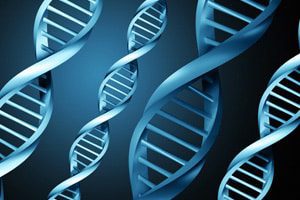
The U.S. Food and Drug Administration (FDA) has demanded 23andMe, a DNA testing service, to immediately stop selling and marketing its services until the agency gives the firm clearance to do so. The FDA is seeking to stop the sales of genetic testing services sold directly to consumers and issued a very cutting warning letter […]
 The U.S. Food and Drug Administration (FDA) has demanded 23andMe, a DNA testing service, to immediately stop selling and marketing its services until the agency gives the firm clearance to do so.
The U.S. Food and Drug Administration (FDA) has demanded 23andMe, a DNA testing service, to immediately stop selling and marketing its services until the agency gives the firm clearance to do so.
The FDA is seeking to stop the sales of genetic testing services sold directly to consumers and issued a very cutting warning letter which it posted on its site. The letter, according to The New York Times, indicated that 23andMe did not offer sufficient proof that its Personal Genome Service provided consumers with accurate results. “FDA is concerned about the public health consequences of inaccurate results from the PGS device,” the agency wrote in its letter.
23andMe is among the most popular personal genome testing companies, which is due in large part, according to the Times, to its Google backing and that it is run by Anne Wojcicki, wife of a Google founder, Sergey Brin; the couple are separated.
The $99. 23andMe PGS test is only available on the firm’s website, and has been used by some half a million people, to date. The test analyzes the DNA in a saliva sample and is used to advise consumers if they are risk for specific diseases, among other information, according to the Times. Ms. Wojcicki recently said she hoped to reach a million customers by early 2014.
The FDA wrote that the service is being sold “without marketing clearance or approval in violation of the Federal Food, Drug and Cosmetic Act (the FD&C Act)” noting that the test “is intended for use in the diagnosis of disease or other conditions or in the cure, mitigation, treatment, or prevention of disease, or is intended to affect the structure or function of the body,” The FDA also wrote that the company’s website, www.23andme.com/health, markets the service as providing “health reports on 254 diseases and conditions,” which includes categories such as “carrier status,” “health risks,” and “drug response,” and as a “first step in prevention,” enabling users to “take steps toward mitigating serious diseases.” The FDA letter also indicates that the diseases listed include “diabetes, coronary heart disease, and breast cancer.”
In its letter, the FDA accused 23andMe of maintaining a growing list of intended uses that make the service a medical device under the Act and wrote that most of the uses have no classification, which means that either premarket approval or de novo classification is required, which the FDA said it “has explained to you on numerous occasions.”
The FDA wrote that “Some of the uses for which PGS is intended are particularly concerning” citing “BRCA-related genetic risk and drug responses” assessments, among others. False positives and false negatives could lead to increased and unnecessary testing and prophylactic treatment, including voluntary mastectomy; delayed treatment, such as cancer treatment; or inappropriate treatment or medication dosing, specifically regarding life threatening diseases.
Questions about DNA tests targeted to consumers have mounted in recent years, especially concerning the need for agency approval of some of the products and if their uses constitute practicing medicine, noted the Times. Ms. Wojcicki maintains that consumers have a right to their own DNA Information, although, since 2009, the firm’s representatives have been speaking to the FDA about how its tests could receive regulatory approval.
Meanwhile, the FDA wrote that, “Even after these many interactions with 23andMe, we still do not have any assurance that the firm has analytically or clinically validated the PGS for its intended uses, which have expanded from the uses that the firm identified in its submissions.” The FDA indicated, according to the Times, that it had not heard from the company since May. “Instead, we have become aware that you have initiated new marketing campaigns, including television commercials that, together with an increasing list of indications, show that you plan to expand the PGS’s uses and consumer base without obtaining marketing authorization from FDA.”


